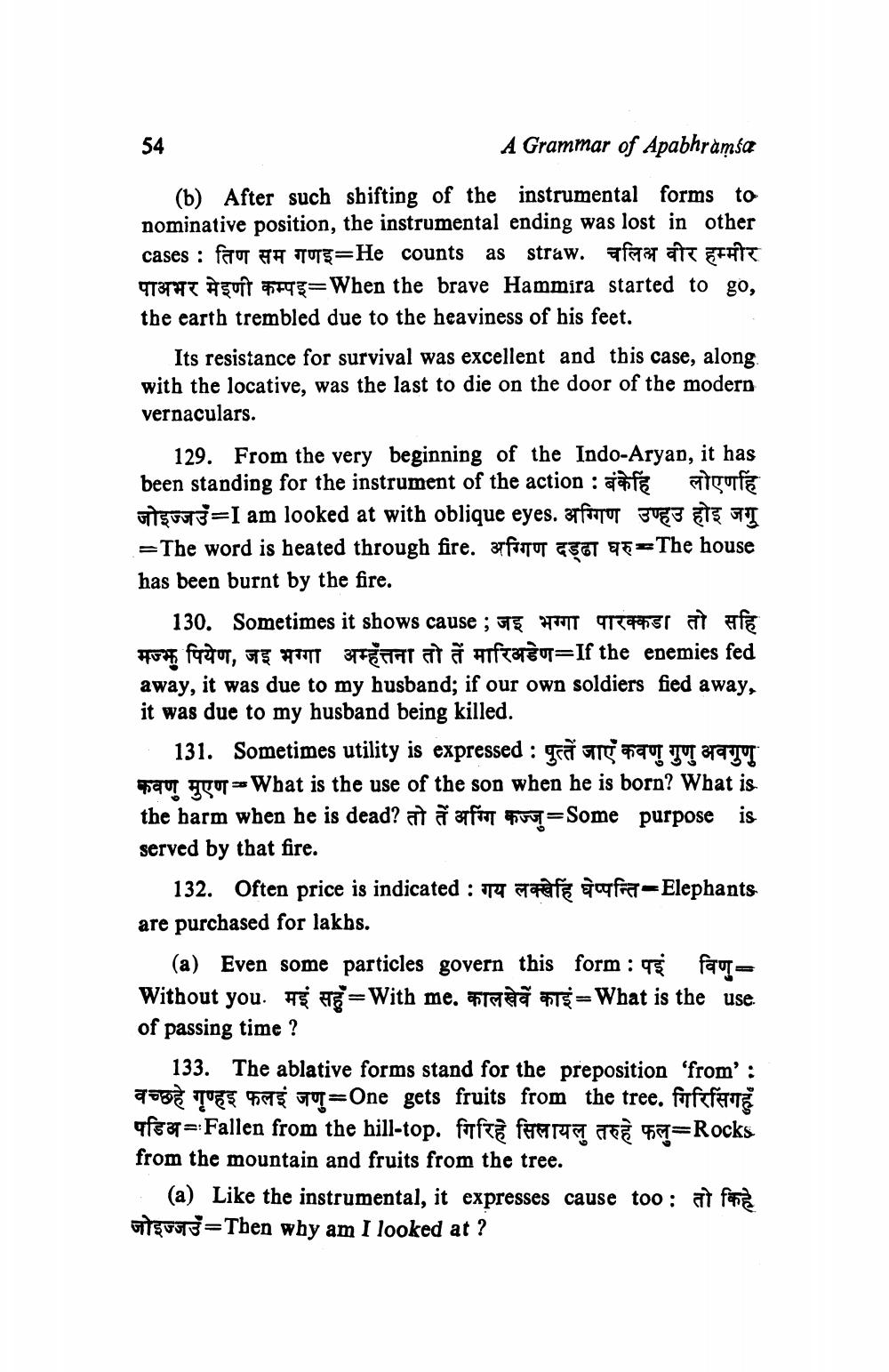________________
54
A Grammar of Apabhramsa
(b) After such shifting of the instrumental forms to nominative position, the instrumental ending was lost in other cases : तिण सम गणइ=He counts as straw. चलिम वीर हम्मीर 9T37777 ÀGUTT 743=When the brave Hammira started to go, the earth trembled due to the heaviness of his feet.
Its resistance for survival was excellent and this case, along with the locative, was the last to die on the door of the modern vernaculars.
129. From the very beginning of the Indo-Aryan, it has been standing for the instrument of the action : बंकेहिं लोएणहिं जोइज्जउँ=I am looked at with oblique eyes. अग्गिण उण्हउ होइ जगू =The word is heated through fire. FOTTUT GEHT 9F=The house has been burnt by the fire.
130. Sometimes it shows cause ; 78 TOT 973451 at af Ho fotor, 75 PTT STEFAT at a Afcorfu=If the enemies fed away, it was due to my husband; if our own soldiers fied away, it was due to my husband being killed.
131. Sometimes utility is expressed : gră argou To Bayu our go-What is the use of the son when he is born? What is the harm when he is dead? at a afro que=Some purpose is served by that fire.
132. Often price is indicated : 174 parelle Sofra-Elephants are purchased for lakhs.
(a) Even some particles govern this form : faute Without you. मई सहुँ=With me. कालखे काइं= What is the use of passing time?
133. The ablative forms stand for the preposition 'from': वच्छहे गण्हइ फलई जणु =One gets fruits from the tree. गिरिसिंगहें पडिअ=Fallen from the hill-top. गिरिहे सिलायलु तरुहे फलु=Rocks from the mountain and fruits from the tree.
(a) Like the instrumental, it expresses cause too : at forma 779pug=Then why am I looked at ?




